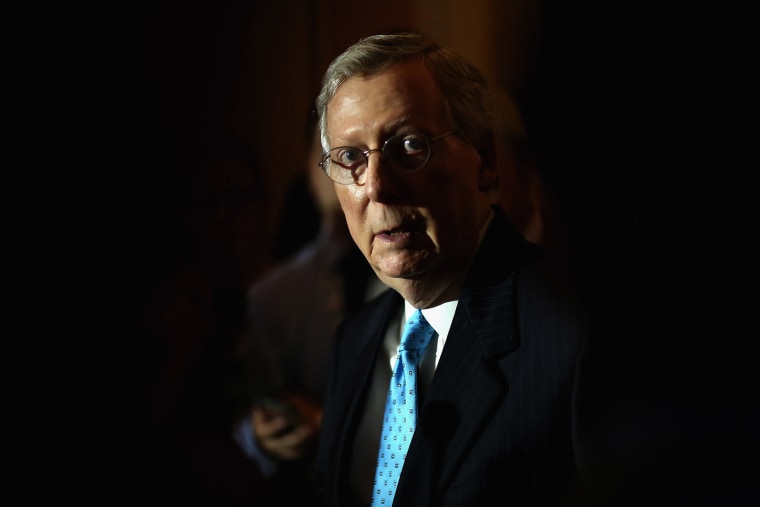The House Democratic majority has had quite a bit of success in recent months advancing many of its top legislative priorities, though the leadership clearly has plenty of additional work to do. Up next is legislation intended to "safeguard our democracy from future attacks."
At first blush, this may seem like an area where bipartisan progress is at least possible. After all, there's nothing inherently partisan or ideological about protecting our system of elections against foreign intrusion -- especially in the wake of the Mueller report, which documented Russia's attack in great detail.
The New York Times reported this week, however, that Senate Majority Leader Mitch McConnell (R-Ky.) has effectively become a "one-man roadblock" on the issue.
The bills include a Democratic measure that would send more than $1 billion to state and local governments to tighten election security, but would also demand a national strategy to protect American democratic institutions against cyberattacks and require that states spend federal funds only on federally certified "election infrastructure vendors." A bipartisan measure in both chambers would require internet companies like Facebook to disclose the purchasers of political ads.Another bipartisan Senate proposal would codify cyberinformation-sharing initiatives between federal intelligence services and state election officials, speed up the granting of security clearances to state officials and provide federal incentives for states to adopt paper ballots.
McConnell, the article added, has nevertheless imposed a "blockade."
During a hearing last month, Senate Rules Committee Chairman Roy Blunt (R-Mo.) conceded that election-security legislation can't move forward because the majority leader insists that the debate "reaches no conclusion."
Blunt made clear that the prospects for any legislative progress on this issue simply do not exist.
The official explanation for McConnell's obstinacy is that the bipartisan election-security measures constitute election "regulation" -- an idea the Kentucky Republican says he abhors.
But in this case, the recent history is relevant: in 2016, while Russia's attack to help elect Donald Trump was underway, the Obama administration reached out to congressional leaders, urging a united and bipartisan front against a foreign adversary's operation.
Three years later, with the threat against our elections very real, McConnell is now standing in the way of bipartisan legislation intended to help secure our political system against future foreign intrusion.
As Jon Chait put it yesterday, "The Mueller report shows in detail that Trump and almost everybody working for him welcomed Russian help, legal or otherwise. The reason the government isn't doing more to protect our democracy from the next attack is that the people who cooperated with the last attack don't want to."
